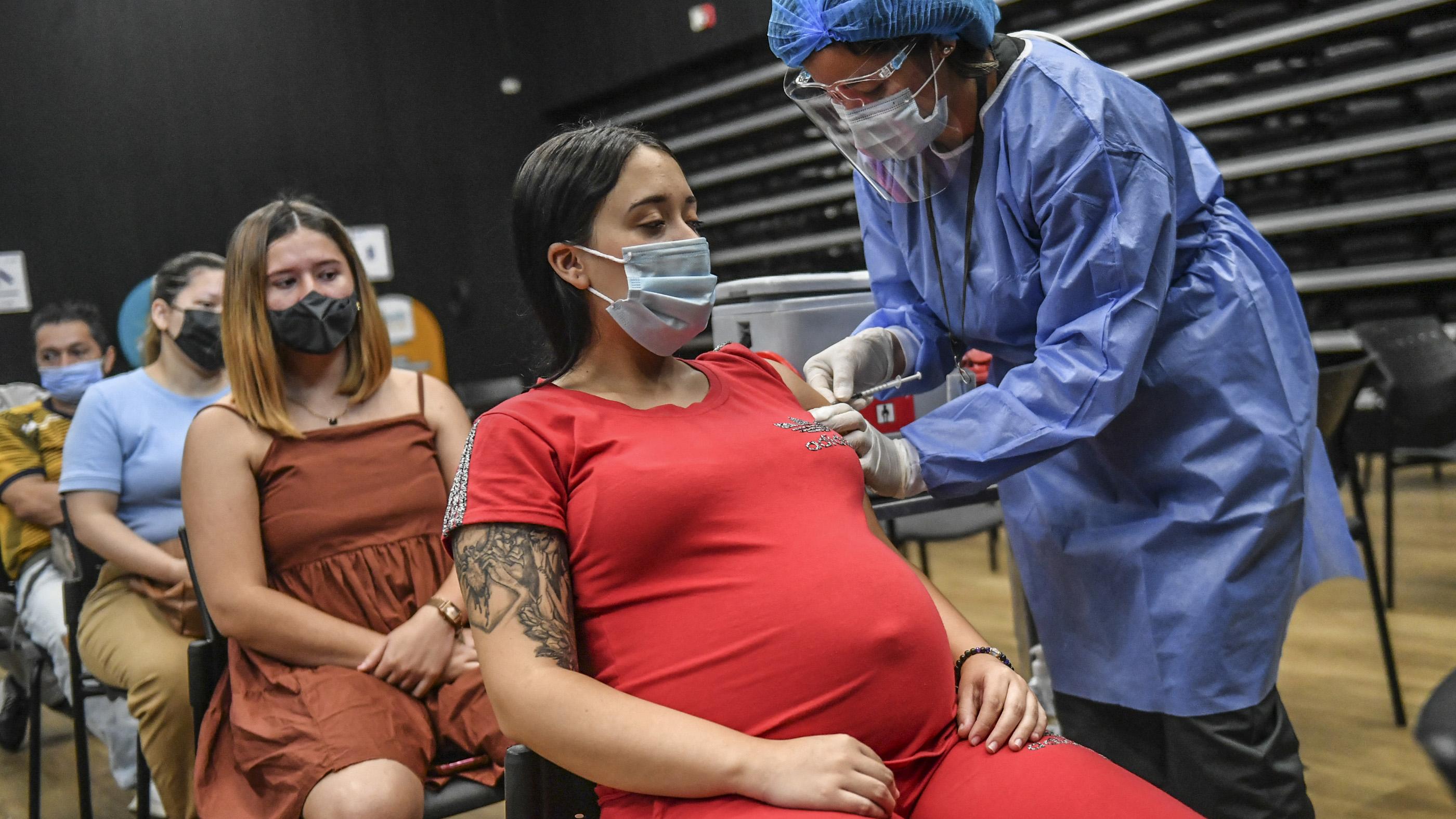COVID-19 during pregnancy linked to preterm birth

COVID-19 may increase the risk of giving birth prematurely, according to the largest study to date on this link.
The risk is even greater, the researchers found, for pregnant people who have both COVID-19 and certain conditions, also called comorbidities, including high blood pressure, diabetes and obesity.
The study is the latest to support a need for pregnant people to be vaccinated against COVID-19 during pregnancy. On Aug. 11, the Centers of Disease Control and Prevention (CDC) recommended that all pregnant women be vaccinated and said that new data further support that all approved COVID-19 vaccines are safe for use in this group.
Related: Which COVID-19 vaccine has the lowest rate of breakthrough infections?
The evidence of a link between COVID-19 and preterm birth "has really been building over time," said study co-author Deborah Karasek, an epidemiologist and assistant professor of obstetrics, gynecology and reproductive sciences at the University of California, San Francisco.
For the study, which was published July 30 in the journal Lancet Regional Health — Americas, the researchers examined everyone who gave birth in California between July 2020 and January 2021. The researchers divided births into four categories based on term length: very preterm birth, which occurs before 32 weeks of pregnancy; preterm birth, which is between 32 and 37 weeks; early term birth, which is between 37 and 38 weeks; and term, which is between 39 and 44 weeks. They found that pregnant people who had a reported COVID-19 diagnosis on their baby's birth certificate had a 60% increase in the risk of very preterm birth, a 40% increase for preterm birth and a 10% increased risk for early term birth compared with those with no COVID-19 diagnosis.
The large increased risk for very preterm birth is especially concerning, said Karsek, because that category carries the highest risks for infant complications and death. Combined with one of the comorbidities already thought to increase the severity of COVID-19, such as diabetes, the risks of delivering before term went up further, they found.
Get the world’s most fascinating discoveries delivered straight to your inbox.
As has been true throughout the pandemic, Latina, American Indian or Alaska Native and Hawaiian Native or Pacific Islanders made up a disproportionate number of the women who tested positive for COVID-19 during pregnancy. This is likely because members of these groups were more likely to live in overcrowded housing and to hold jobs with high COVID-19 exposure, according to a 2020 study posted to the preprint database medrXiv. While more people of color were diagnosed with COVID-19, they were not more likely to have a preterm birth.
Related: 14 coronavirus myths busted by science
The researchers also distinguished early births that were induced for medical reasons from those that occurred spontaneously. In some cases, Karasek said, doctors may induce an early birth for someone who is severely ill or who has certain medical complications. A previous study published in the journal JAMA pediatrics found that most preterm births among those with COVID-19 were medically induced. Some inductions could have been related to the respiratory problems of severe COVID-19, Karasek said, whereas in the JAMA study, researchers note that many were related to an increase in pregnancy complications in those with COVID-19 that is not well-understood. . But in this research, spontaneous preterm birth occurred more frequently, and in many cases, records didn't specify whether the birth was spontaneously early or medically induced. The study did not examine the reason for the relative increase in spontaneous preterm births, and researchers still don't understand why those with COVID-19 might spontaneously give birth prematurely.
"Future research can explore those different mechanisms through which COVID infection would impact preterm birth," said Karasek.
Because the study used data from birth certificates, researchers could also not say for sure when in pregnancy people tested positive for the virus. Many of the participants likely tested positive in the hospital and had active infections while giving birth, Karasek said, especially since the results match data where this was the case. But it's possible that some people had previous COVID-19 diagnoses noted on the certificate. The certificates also gave no details about illness severity. While Karasek said it would be logical to think that a more severe infection could lead to a greater risk of preterm birth, she noted that at one point, as many as 10% of pregnant people in California had a COVID-19 diagnosis noted on the birth certificate.
"Those are likely not all severe infections," Karasek said. "So this does indicate that maybe that there may be a relationship with preterm birth, even for more mild infections or even asymptomatic infections."
The study period ended in January, too early to examine the impact of vaccines, or risks from breakthrough infections and concerning coronavirus variants, like the more transmissible delta variant. However, Karasek emphasized that the study results provide a strong incentive for pregnant women to get vaccinated, which strongly reduces the risks of severe COVID-19.
"I think vaccination is a very important tool that we have to reduce COVID infection and severity of infection that could also mitigate preterm birth," she said.
Originally published on Live Science.

Rebecca Sohn is a freelance science writer. She writes about a variety of science, health and environmental topics, and is particularly interested in how science impacts people's lives. She has been an intern at CalMatters and STAT, as well as a science fellow at Mashable. Rebecca, a native of the Boston area, studied English literature and minored in music at Skidmore College in Upstate New York and later studied science journalism at New York University.
